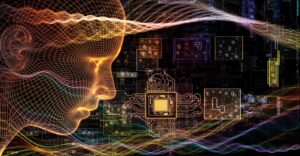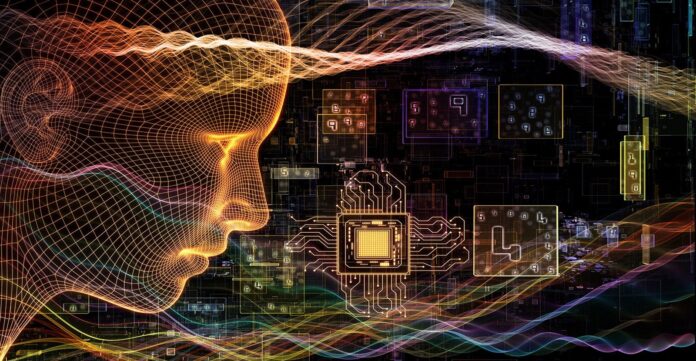
Introduction
Quantum computing has long been a subject of fascination and speculation in the tech world. As we advance through 2024, the landscape of quantum computing is evolving rapidly, driven by groundbreaking discoveries and innovations. This article delves into the latest scientific breakthroughs in quantum computing that are setting the stage for a transformative year ahead. We’ll explore the key advancements, their implications for various industries, and what they mean for the future of technology.
The Quantum Computing Revolution
Quantum computing represents a paradigm shift from classical computing. Unlike classical computers that use bits to process information as either 0 or 1, quantum computers utilize quantum bits or qubits, which can exist in multiple states simultaneously. This unique property allows quantum computers to solve complex problems exponentially faster than their classical counterparts.
In 2024, we are witnessing significant strides in quantum computing research and development. Let’s examine some of the most notable breakthroughs that are shaping the tech frontier.
1. Quantum Supremacy Achievements
One of the most talked-about milestones in quantum computing is the achievement of quantum supremacy. Quantum supremacy refers to the point at which a quantum computer can perform a calculation that is beyond the reach of the most powerful classical supercomputers.
In early 2024, researchers at a leading tech institute announced a landmark achievement in quantum supremacy. Their quantum processor completed a complex computation in just minutes that would have taken classical supercomputers thousands of years to solve. This breakthrough demonstrates the immense potential of quantum computing for solving real-world problems, from cryptography to drug discovery.
2. Advances in Quantum Error Correction
Quantum error correction is crucial for the practical implementation of quantum computers. Quantum systems are highly susceptible to errors due to decoherence and noise. To address this, scientists have made significant progress in developing quantum error correction codes.
Recent discoveries in this area have led to the creation of more efficient and robust error correction algorithms. These advancements are enhancing the reliability and stability of quantum computations, making it feasible to execute longer and more complex quantum algorithms. Researchers are optimistic that these improvements will pave the way for practical quantum computing applications in various fields.
3. Development of Quantum Communication Networks
Quantum communication is another exciting frontier in quantum technology. Quantum communication networks leverage the principles of quantum entanglement and superposition to enable secure and efficient transmission of information.
In 2024, several international collaborations have led to the successful demonstration of quantum communication networks over long distances. These networks are being tested for their potential in secure data transmission, which could revolutionize cybersecurity. By using quantum key distribution (QKD), these networks provide an unprecedented level of security against eavesdropping and hacking.
4. Breakthroughs in Quantum Hardware
The development of quantum hardware is essential for advancing quantum computing capabilities. Researchers are exploring various materials and technologies to build more stable and scalable quantum processors.
Recent breakthroughs include the fabrication of high-fidelity qubits using superconducting circuits and trapped ions. These new hardware platforms are improving qubit coherence times and gate fidelities, which are critical for performing reliable quantum computations. Additionally, advances in cryogenic technology are enabling the cooling of quantum processors to temperatures close to absolute zero, where quantum phenomena are more pronounced.
5. Integration of Quantum Computing with AI
The integration of quantum computing with artificial intelligence (AI) is an emerging trend that promises to unlock new possibilities in data analysis and machine learning. Quantum algorithms can potentially accelerate the training of AI models and enhance their performance.
In 2024, we are seeing increasing efforts to develop hybrid quantum-classical algorithms that leverage the strengths of both quantum computing and AI. These algorithms aim to solve complex optimization problems, improve pattern recognition, and advance natural language processing. As quantum computing continues to evolve, its synergy with AI is expected to drive innovations in various sectors, including finance, healthcare, and logistics.
6. Impact on Drug Discovery and Material Science
Quantum computing has the potential to revolutionize drug discovery and material science by simulating molecular and chemical processes with unprecedented accuracy. This capability can lead to the discovery of new drugs, materials, and technologies.
Recent breakthroughs in quantum simulations have demonstrated the feasibility of modeling complex molecular structures and chemical reactions. Pharmaceutical companies are already exploring the use of quantum computing to identify potential drug candidates and optimize their properties. Similarly, material scientists are using quantum simulations to design new materials with desirable properties, such as superconductors and high-strength alloys.
7. Challenges and Future Directions
Despite the remarkable progress in quantum computing, several challenges remain. Building scalable quantum systems, ensuring error correction, and developing efficient quantum algorithms are ongoing areas of research.
The future of quantum computing will likely involve continued advancements in hardware, software, and theoretical foundations. Researchers are working on developing quantum networks, exploring new qubit technologies, and improving the integration of quantum systems with existing infrastructure.
Conclusion
The year 2024 is witnessing significant breakthroughs in quantum computing that are shaping the future of technology. From achieving quantum supremacy and advancing quantum error correction to developing quantum communication networks and integrating quantum computing with AI, these discoveries are pushing the boundaries of what is possible.




